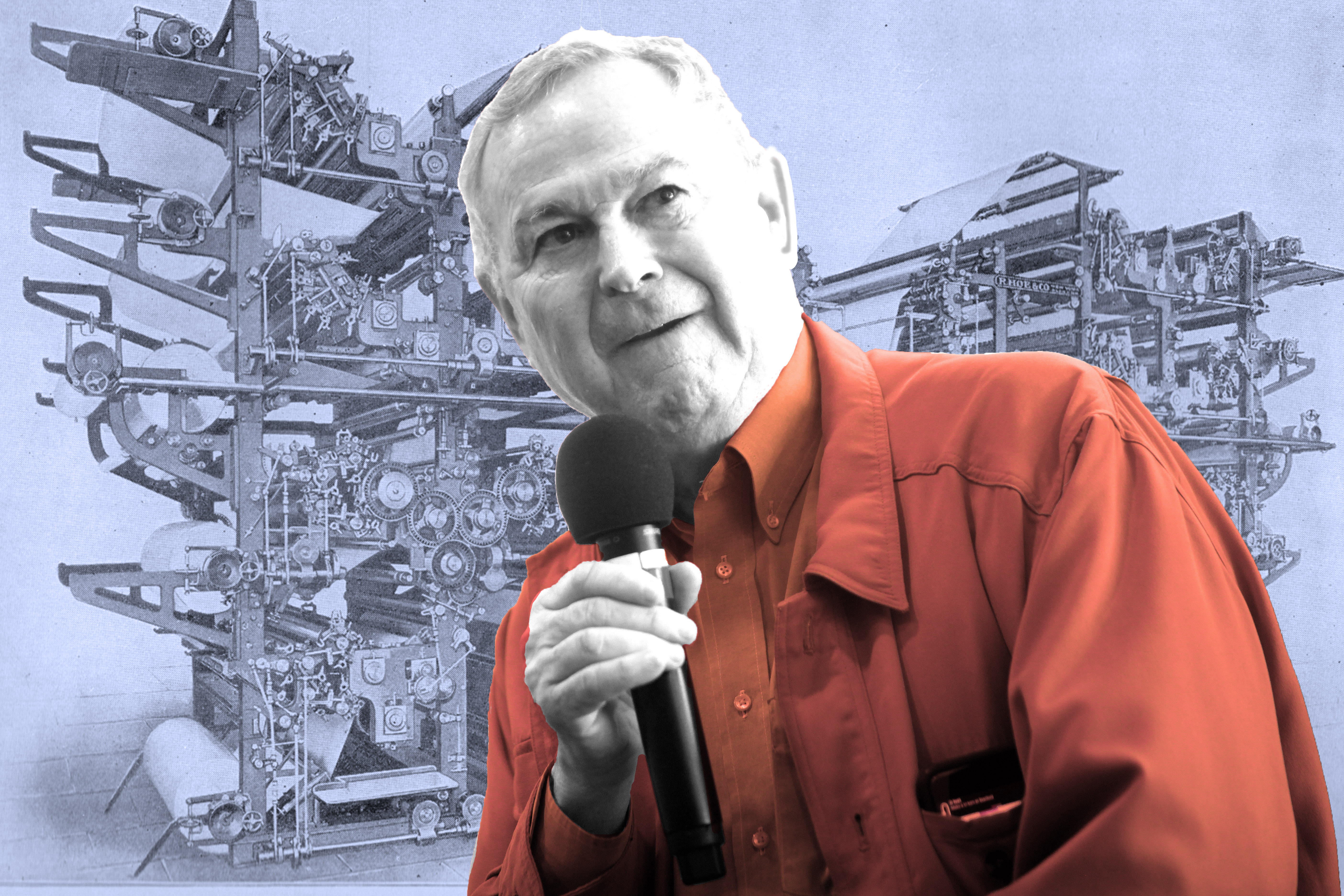A weekly newsletter for Pacific Standard Premium members.

Your Five Essential Reads
A rundown of five of our most important and timely stories from the past week.
- “There’s many, many claims that have been made not just in the science community, but throughout, for everything, in order to justify global government. And that’s what climate change is. Climate change is a maneuver by very powerful interest groups to create global government.” Ross Ufberg spoke with California Republican Congressman Dana Rohrabacher about a wide range of topics—immigration, Russia, climate change, and more. Read Ufberg’s interview with Rohrabacher here.
- Last Saturday’s massacre at a Pittsburgh synagogue rocked the American conscious. But according to cultural anthropologist C. Richard King, people needn’t have been so surprised. Senior staff writer Tom Jacobs interviewed King about America’s denial of its dark history of, anti-Semitism. Read Jacobs’ interview here.
- Contributing writer Jared Keller examines how we can’t talk about Saturday’s shooting without discussing President Donald Trump’s part in encouraging the acceptance of hateful speech in the American discourse. Read Keller’s piece here.
- Many state governments are making it easier for former felons to vote. The opposite appears to be true across the American South, however. As Angela Caputo reports, a new analysis done by Pacific Standard and APM Reports indicates that the number of voters in the South who were purged from the rolls due to past-felonies has nearly doubled in the last decade. Read Caputo’s story here.
- In a week marred by the continued rise of right-wing violence, the Oregonian chose to run an editorial defending a far-right group and its leader, Joey Gibson. As contributing writer Massoud Hayoun reports, the decision has raised concerns among activists that, in doing so, the paper promoted hateful and potentially violent rhetoric. Read Hayoun’s story here.

There’s a Name for That: Social Identity Theory
Plenty of Southerners enjoy the taste of grits. But in situations that activate their regional identity, they like it even more. The same goes for Canadians with maple syrup, and the Swiss with the smell of chocolate. Behind our seemingly nationalistic food preferences are the psychological processes that inform group identity, which, research shows, can change depending on our environment.
Developed by Henri Tajfel in the 1970s, social identity theory explains the relationship between individual and group identity (essentially, what makes someone a grit lover versus a maple syrup enthusiast). In society, individuals connect with their in-group and, less so, with an out-group. Your in-group might be made up of people who share your nationality, political party, or race. Historically, many researchers believed that humans could not stem the bias we felt toward people of our own race. In other words, the boundaries between one race and another seemed nearly insurmountable.
New research on social identity theory suggests otherwise. Psychologist Jay Van Bavel has found that humans can identify with another in-group rapidly, simply by being paired up to complete tasks. In Van Bavel’s 2009 Ohio State University study, white participants randomly assigned to a team had an automatic preference for their team members, both white and black, that outweighed their initial racial bias.
Our identities, Van Bavel says, aren’t as intractable as we think: “We change our spots, just like a chameleon, to blend into the situation that we’re in, and it activates different identities.”
These preferences have significant bearing on the way we view the world. According to Van Bavel, identities that govern seemingly innate experiences, such as the taste of food—or even racial bias—can be harnessed to create positive social change. Northerners may never appreciate grits as much as their Southern neighbors, but we can overcome boundaries that run even deeper.
—Emily Moon, Editorial Fellow
PS Picks
PS Picks is a selection of the best things that the magazine’s staff and contributors are reading, watching, or otherwise paying attention to in the worlds of art, politics, and culture.
Yaeji Pokes Holes in the Facade: In the video for “Last Breath,” artist Yaeji repurposes the YouTube make-up tutorial format as a visual foreground for cutting commentary. She lightly pats foundation into her skin while the background vocals harmonize, “All your embarrassing memories / can be applied naturally.” She then serenely drags a contour stick along her jawline, parting her lips into a slight smile so she can blend into the shadows of her face more easily—mirroring the beats of the conventional tutorial video. As she smears dark eye-shadow along the rims of her eyes, subtitled lyrics at the bottom of the video read, “This product is called Depression and / it stays on for 24 hours.”
Yaeji’s “Last Breath” is both an homage to and whimsical mockery of women’s beauty routines. Her piercing lyrics, juxtaposed with her groovy, pulsating melodies and shimmery skincare products, remind listeners that the demand for immaculate self-presentation and self-loathing often go hand in hand.
For me, “Last Breath” delivers a refreshing punch of candor to the realm of make-up, which, as of late, is being re-christened as the realm of “beauty and wellness.” There has been a recent pivot in the way beauty products are marketed to women: Looking pretty is not about looking pretty as much as it is a means to demonstrate well-being and empowerment. Millennial beauty brand Glossier calls itself a “people-powered beauty ecosystem,” one that vows to “democratize beauty” if you invest in its Generation G lipstick. In the Vogue video series “Beauty Secrets,” celebrity women cheerfully toss their hair and dance around marble-adorned bathrooms as they share their guides to getting that perfect glowing skin or effortless color correction. The stakes for women to appear pleasant are already high, but the stakes for women to derive empowerment from their appearance are even higher.
The beauty-as-wellness phenomenon seems to leave women with two undesirable options: Either learn to stop worrying and love the performance of femininity or reject the beauty routine altogether—and be robbed of the genuine, unadulterated joy of self-exploration using cosmetics. Yaeji shows us a third option—acknowledging the pressure to mask imperfections and pain while reveling in the theatrics of beauty—Alexa Lee, Engagement Fellow
PS in the News
A look at where our stories and staff surface in the national conversation.
- The Atlantic included contributing writer David M. Perry’s story about how the news focused its attention on a Kentucky shooter’s history of mental illness—and ignored his history of overt racism—in its Politics and Policy daily round-up.
- John J. Lennon’s stirring feature about how music is helping rehabilitate inmates in Sing Sing was shared by Rehabilitation Through the Arts and Prison Legal News.
- Writing for Quartz, Lila MacLellan referenced a Noah Berlatsky interview with Jonathan Weisman about how to fight anti-semitism in the Trump era in her story about the Pittsburgh synagogue shooting.
The Conversation
Among the Gerrymandered (November 2018)
- That is the case in every state, in every decade when redistricting is done. The census matters, the elections matter. There is nothing to do to make it more fair! It is politics. It will be political. —Wayne Ford
Microdosing May Increase Creativity (November 1st, 2018)
- A study of fewer than 40 people tested at a meeting (not in a clinic under controlled conditions) of something calling itself a psychedelic society does not merit this coverage by general-readership press. It’s misleading. —Bill Hollan
If you have any thoughts about this newsletter or our work—what you like/didn’t like/want to see more of—you can reach us at premium@psmag.com. If you’re not already, become a premium member by following the button below. As we continue to build out the benefits of a premium membership to Pacific Standard, we want to hear what would be most valuable to you.




